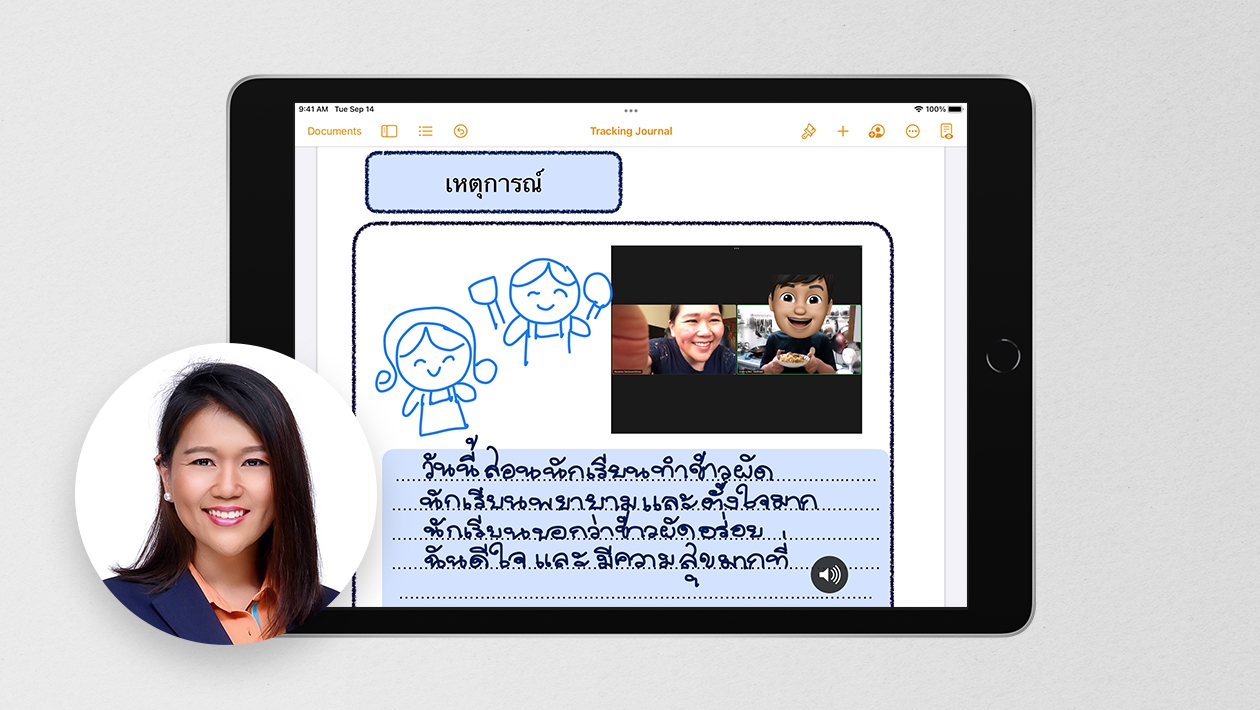Introduction
This creative project used pop art as a springboard for generating ideas about an assigned writing. In this example, students wrote a lyrical poem called an ode.
Objective
Students often struggle to come up with ideas about what to write about. By creating pop art prior to actually starting a writing assignment, students had time to think and reflect as they creatively put together an illustration that went with their final writing piece. This activity reinforced deep thinking about the students' subject matter, and the repetitive activity (drawing) kept them focused on visioning for their final product.
The Process
First, students took a photo of a person or object that was meaningful or sentimental to them personally, and they glamorized it by creating pop art right within the Photo app. Several students took the Andy Warhol approach and replicated their drawing in different colors, and some students modernized their work as they were inspired by Akashi Murakami. Learn more about Creating Pop Art in the Learning Center.
Second, students used the pre-writing strategy of free association to brainstorm sensory language words relevant to their pop art. By selecting significant photographs for their pop art, students had greater ease using their five senses to generate sensory words and phrases they could incorporate into their poems.
Third, students used their drawing and sensory words as inspiration for writing an ode. An ode is a lyrical poem that praises and celebrates a person, event, or object. Students went through the writing process with their poem and used the incredible pop art they had created to illustrate their ode.
Tried And True Teacher Tips
This activity worked best with a photo that had a plain background, although many students were creative and had backgrounds with patterns and textures that enhanced their final project. I recommend that students make a copy of their original photo and retain it “just in case.” Editing usually consisted of changing their photo to black and white and bringing the exposure to 75-100 in order to remove the details they wanted to draw in themselves. Most students found the highlighter was an effective way to fill in the background, and bright colors were encouraged.
Students needed time to draw so I gave them five minutes at the end of each class as an incentive, and they also had the opportunity to sketch while I read aloud a class novel.
Reflections
This was a very inspiring activity for students. When it was first assigned, I heard them out in the hallway sharing their excitement about drawing pop art, and I didn’t hear any complaints about not knowing what to write about once they started drafting poems. The written pieces students created were well thought out, had outstanding examples of sensory language, and students truly "bought in" to the process as evidenced by the amazing written work they created.
Extensions
Students could also write other types of poetry, heartfelt letters, longer narrative pieces, or even an essay.
Call To Action
Please share how you have used Pop Art in your content area to generate new ideas and inspire students to write or create. I'd love to hear what you are doing in your classrooms!












April 20, 2024 . English
English
This is wonderful. I especially like how the describing words are animated to pop!
This action is unavailable while under moderation.
This action is unavailable while under moderation.